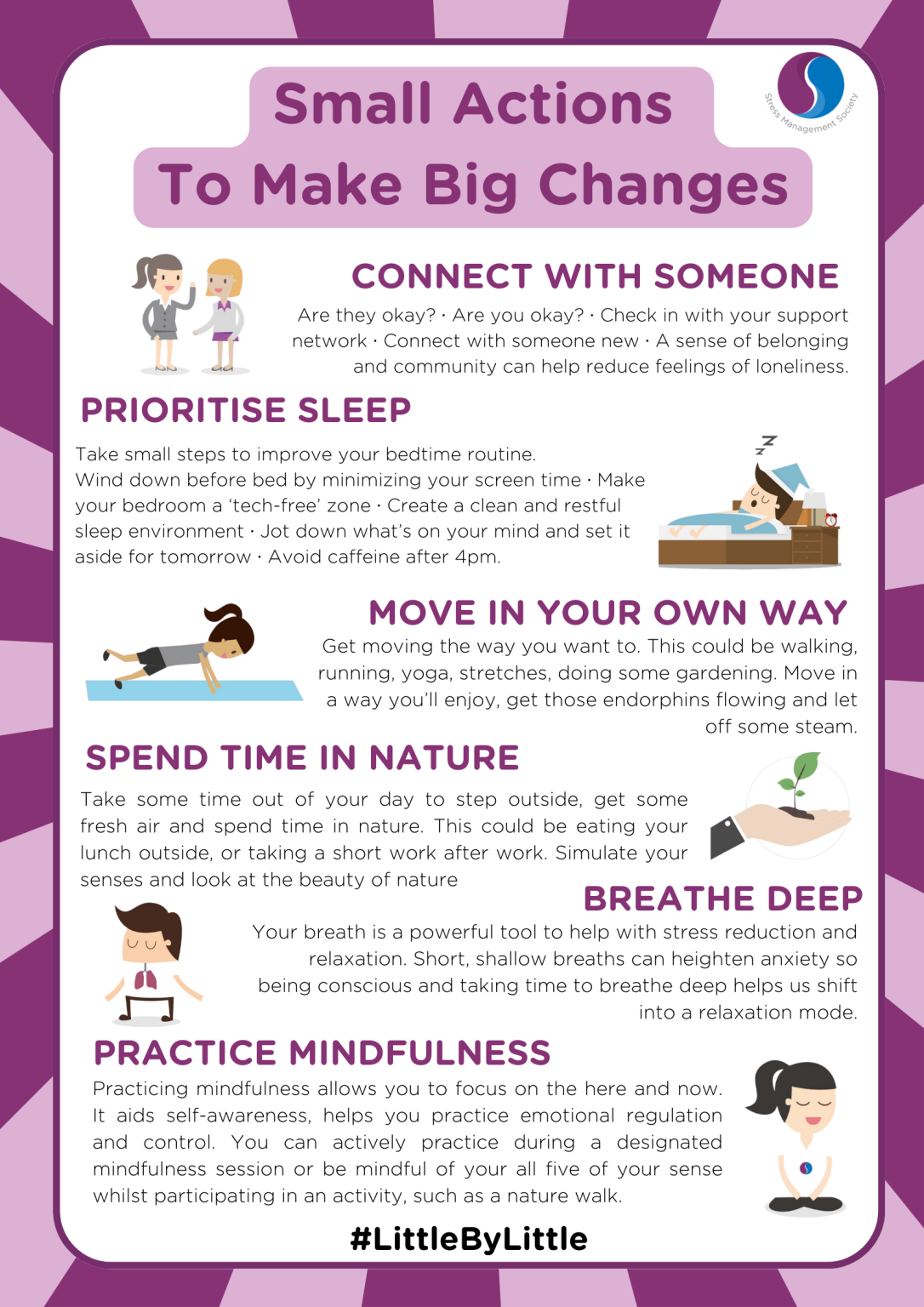April is Stress awareness month
Stress Awareness month has been held every April since 1992. Each year there is a different theme and this year the theme is #LittleByLittle. It highlights the impact of consistent, small positive actions on our wellbeing.
To read more about the theme for this year please visit the Stress management website
Different forms of stress can happen throughout our lives and is actually very normal. There are many things that can cause stress including growing up, school, home life, the pandemic, events unfolding in the news and bullying to name a few.
Are you able to recognise stress in yourself or others?

There are many things you can do to help prevent or manage stress one small step at a time. One of the most important things you can do is to look after yourself, often known as self-care. Each one of us is unique, so the way one person might see self-care can be totally different from the next. Some people may choose to play rugby to de-stress, whilst others may read a book. What do you like to do to take to take care of yourself/self -care?
Below we have listed a range of self-care techniques you could try out, to help prevent or reduce stress. They can be used whenever you need them, not just during stress awareness month. These strategies may help you manage stress, stay connected to those around you and help support good physical and mental health.
Dance
Take a break
Write in a journal or diary
Breathe easy
Fuel your body right
get your creative juices flowing
Laughter therapy
sleepy head
Blog written by, Elin Evans school nurse
What else could you do for Stress Awareness Month?
- Talk openly to those around you about Stress and its effects.
- Talk about how you cope with stress. Share what has worked for you, to see if it can work for someone else.
- Show compassion and empathy to those who are stressed and anxious around you. You could help them find someone to talk to when they are stressed.
It’s important to know what support is available or who to talk to when you are feeling stressed.
visit the Chat Health page on this website if you would like to speak to a school nurse.
visit Youngminds website for more information about mental health.
Kooth is an online counselling service that can support you.
Childine are also able to support
Here are some signs, which may be linked to stress, to look out for:
- You may find it difficult to concentrate
- You may feel anxious.
- You may feel overwhelmed
- You may have low self-esteem.
- You may not have as much confidence in the classroom.
- You may experience poor sleep, not being able to go to, or stay asleep, or even sleep much more.
- You may avoid certain things, such as not spending as much time with friends or avoiding other social situations.


Recent Comments